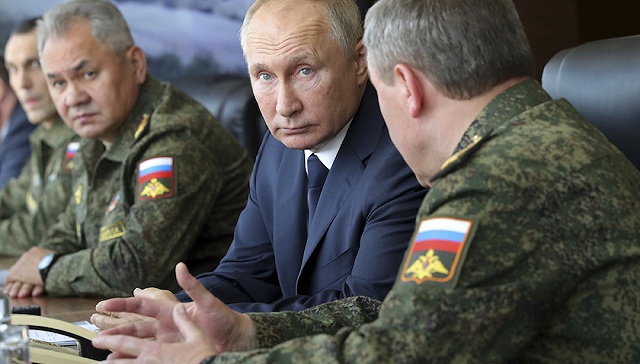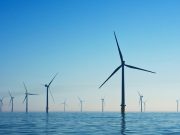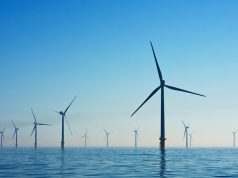The start of 2022 has seen geopolitical risk come to the fore, as tensions between Russia and Ukraine/the West have escalated. Events have taken a sombre turn this week as hopes for a diplomatic resolution waned, and early on Thursday morning Russia launched a full-scale military invasion of Ukraine.
This crisis continues to unfold, and drawing firm conclusions on how things plays out is impossible. There is major concern over the humanitarian impact, but sadly the prospects for near-term de-escalation have faded. This will have consequences for millions of people.
Taking a step back, it is clear that there will be significant ramifications globally. New information continues to filter through, and further Western sanctions are being prepared as we write. We analyse the dynamics as things currently stand, review potential scenarios, and assess the implications for markets.
What has changed?
Recognition of separatist regions, and invasion of Ukraine
In the early hours of 24 February, President Putin announced a major military operation in Ukraine. This was termed as an effort to defend the people of two separatist regions in Eastern Ukraine; Donetsk and Luhansk. However, the incursion has not only extended to these disputed territories, and Russia has launched a full-scale military invasion of Ukraine.
Russian troops have massed on its border with Ukraine in recent months. Russian forces also built-up on the Belarusian border with Ukraine, as well as in Transnistria, a Russian-backed breakaway region of Moldova. Today, together with Russian forces in Crimea and the Black Sea, these forces have launched attacks on targets across Ukraine.
The moves follow President Putin’s decision to officially recognise the independence of Donetsk and Luhansk earlier this week. These two regions have been in a state of civil war since 2014, and neither the separatists nor the Ukrainian government forces held full control of these regions. Russia indicated that it will recognise these regions in full.
Russia is and has been strongly opposed to NATO expansion in countries it sees as being within its sphere of influence. One key issue of contention has been Ukraine’s 2019 constitutional commitment to join NATO. As such, Russia has been seeking a reversal of this commitment from Ukraine, or a commitment from NATO not to admit Ukraine.
Diplomatic negotiations have so far failed, and a pathway to de-escalation looks narrow. Dropping Ukraine’s ambition for NATO membership was always politically difficult for President Zelensky, while the West was wary of heeding to the Kremlin’s demands. Given the degree of Russian aggression overnight, neither position seems likely to change at this point.
Western sanctions
The US and other Western allies announced new sanctions on Russia in response to the recognition of the separatist regions in the east. These were relatively limited in nature, but more severe sanctions are now being drawn up, which we await the details of. The below is a summary of what was announced earlier this week:
US sanctions include measures against two Russian banks, extended restrictions on sovereign debt trading, and on a number of individuals. It has also banned US citizens from investing in, trading with or financing the separatist regions.
EU sanctions target 351 Russian parliamentarians who voted in favour of the recognition of the breakaway regions, as well as 27 Russian individuals and entities which the bloc believes are playing a role in relation to current actions towards Ukraine.
The UK has sanctioned five Russian banks, and frozen the assets of three Russian citizens. In addition, Germany has suspended the certification process of the Nord Stream 2 natural gas pipeline, which runs between Russia and Germany.
What impact could sanctions have?
Tom Wilson, Head of Emerging Market Equities
“The Western sanctions response is expected to be robust, but it is difficult to gauge the impact until we see the full extent. There is also uncertainty regarding the Russian response to sanctions.
“Sanctions will weigh on future growth, although Russia is relatively difficult to sanction. The country is not dependent on external capital, is a net external creditor, has negative net external funding needs, disciplined fiscal policy, low government debt, and orthodox monetary policy.
“Furthermore, Russia is an important exporter of oil, gas, industrial metals, precious metals, fertilisers, and soft commodities such as cereals. Russian exports in these categories often represent a significant share of global supply.
“Sanctions which impact trade may result in higher global commodity prices, which would be stagflationary and cause economic pain. This may be particularly so for Europe, given its reliance on Russian gas.
“The threat of sanctions does not appear to have deterred Russian incursion. However, an invasion may drive a more robust and sustained Western response than expected. It may be that NATO has been given fresh purpose and that Russian action triggers a marked increase in NATO presence in Eastern Europe.”
Are there broader implications for global markets?
David Rees, Senior Emerging Markets Economist
“The key focus from a global perspective will be on the impact of higher commodity prices and the impact on inflation. This morning we have had a taster of what will happen to energy prices, but the impact on commodity prices may be broader, given Russia’s importance across the commodities complex.
“Inflation has been an important theme for investors. We have been forecasting a moderation in inflationary pressure this year, but it is likely that above target inflation persists for longer, and indeed could tick higher in the near term. While we still see some moderation coming, more persistent inflation will hurt growth.
“When we last published global forecasts in November, we had an oil price shock scenario at around $100, but we might have to go back to the drawing board now with our new forecasts. $120 might be the new scenario, but it could rise even further, and it will have a bigger impact on growth. We need to wait and see how the dust settles on this, markets are volatile and uncertainty extremely high.”
How have global markets responded?
Russian equities, as measured by the MSCI Russia Index, were already down by over -24% in US dollar terms year-to-date, at the close on 23 February. Today has seen a severe sell-off, with the MOEX Russia Index down by over -30%, the Russian rouble down -8.5% relative to the US dollar. Russia’s 10 year government bond yield has climbed to 10.69%, its highest level since 2015. Ukraine’s currency, the hryvnia, fell more than 9% yesterday, before trading was suspended.
European equities have also moved lower today, with the Eurostoxx 600 Index falling by 3.8% and the UK’s FTSE 100 down 3.1%. In Asia, Hong Kong’s Hang Seng Index was down by over -3%. Meanwhile, Brent crude rose by around 7% to over $104 per barrel, its highest level since 2014. The US 10 year bond yield has increased to 1.93%, while the US dollar index is up 1.2% today.
What is the outlook from here?
Russia’s recognition of these breakaway regions and subsequent invasion of Ukraine curtails almost any possibility of the Minsk II agreement being implemented. This was the protocol signed back in 2015, which although it did not end the conflict, was established as the basis for a resolution.
De-escalation now looks to be even more complicated. Uncertainty has increased, and the risk of further escalation is palpable. Western sanctions are being intensified and the response from Russia will be closely watched. The risk of more prolonged uncertainty is high.
Johanna Kyrklund, Group Chief Investment Office and Co-Head of Investment
“The one major source of uncertainty is how the Ukrainians and the Western powers will react. The assumption is that the response will be ever tougher sanctions. But there is also the question of whether at some point the West will be willing to intervene militarily.
“Looking beyond the impact of geopolitical risk on risk premiums, the main economic transmission mechanism is via energy prices. This poses particular challenges for Europe given its reliance on Russian energy.
“This has detrimental implications for growth and complicates the picture for the European Central Bank.”
Dorian Carrell, Multi-Asset Fund Manager
“The broad scale of military operations is an escalation not expected by markets. A series of steps are likely to follow. Firstly, there will be the imposition of further sanctions from the West. We would also expect Russia to react in some way, possibly with counter measures. With this in mind, and given that Russia’s ultimate military objectives are still unclear, we don’t think we are at peak uncertainty yet and further market stress could follow and volatility persist.”
Tom Wilson, Head of Emerging Market Equities
“Overnight escalation has caused severe market stress. In the near term, uncertainty will remain elevated, and as a result, the risk premium on Russian assets is likely to persist.
“We await the detail on additional Western sanctions, and the response from Russia. The situation in Ukraine is grave but we remain focused on making rational decisions, based on new information as it appears.”





































